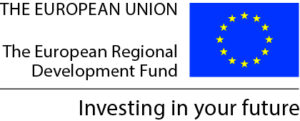
Toilet facilities from One Stop Shop
Improving livelihoods through better sanitation
The One Stop Shop project targets and intervenes with the hazardous danger to public health of open defecation and lack of access to clean water and sanitation, which are primary issues in poor areas.
The One stop shop is a sustainable, total solution, non-pollution toilet and sanitation facility station in combination with a local payment aggregation (see Pay E-safe). In other words, the One Stop Shop promotes the unity of hygienic sanitation and health security to the community.
The setup includes toilet, bathing and hygienic facilities and at a later date also intends to incorporate a sewage system that turns waste water into renewable energy at low costs.
Besides improving livelihoods through better sanitation, the project also engages with training and educating the community in the importance of decent hygiene and proper use of the One Stop Shop. Access2innovation has granted funding to the Danish company EnviClean to develop and test this sustainable sanitary solution for use in slum areas and has aided EnviClean in enabling contact and forming partnership.
Enviclean, DMS Africa, Duckwise and Aalborg University are currently working on a more feasible version of the One Stop Shop, which is expected to be tested in Kenya before the end of 2018.
Partners
Better hygiene results in fewer cases of illness
Many Africans in slums go to inhumanly buried latrines, where the stools sometimes run into open sewers. Sometimes so-called “flying toilets” are used, which means that a plastic bag works as a mobile toilet bowl, which can then be thrown away.
The One Stop Shop project cuts health risks arising from unhygienic toilet habits and lack of access to clean water and sanitation, which is a major problem in poor areas.
The users pay a small amount to use the facilities in the toilet building and in return, they get access to good hygiene, as well as a voucher, they can use on clean water and hygiene items in the One Stop Shop’s shop.
Among other things, the clear hygiene improvement has resulted in no outbreak of cholera in the area since the construction of the facilities.
There are plans to continuously integrate a sewerage system, that will convert wastewater into renewable energy. In this way, in addition for being a social project, it will also become an environmentally sustainable project.
This is a PIVØ-project (Partnershipdriven innovation for emerging markets in East Africa”), supported by The European Regional Development Fund.
Partners
Get support and sparring from idea to successful business on emerging markets in Africa

